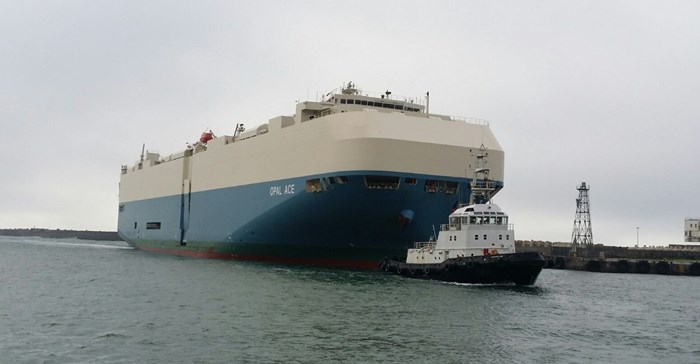
The IPMS was developed by Navayuga Infotech, a company based in India, in collaboration with their South African partner Nambiti Technologies. It replaces the manual processes and enables key port operations to be managed online and in real time across TNPA's commercial ports. Since IPMS was first introduced in July, 250 vessel agents have registered onto the system and more than a 1,000 vessel arrival notifications have been submitted across the seven ports.
Chief Executive Richard Vallihu said "Global ports are adopting 'smartPORT' concepts and the world is increasingly embracing digital technologies and data analytics to make sense of the information that we have around us. Gathering that information in the first place is a challenge. This online system will help transform our ocean gateways into smartPORTs by using advanced information technology that will make them more intelligent and sustainable while conserving resources, time, space and energy."
He added "As TNPA, we believe that the glue or the backbone of our entire port system is information systems, but in an integrated way, where we manage just about every input and output to make monitoring, tracking, evaluating and optimising a lot simpler." The IPMS is a strategic project that aims to support the broader objectives of the Transnet Market Demand Strategy (MDS) in terms of efficiency and productivity.
Vallihu said the IPMS was benchmarked against Malaysian and Singaporean ports which were among the world's most efficient. It is a groundbreaking initiative in that for the first time in the world a system such as this is integrated across multiple ports on a single platform.
According to General Manager Mmutle Lentle "This is the beginning of one of many initiatives that will see Transnet create visibility within the transport value chain and enable connectedness of the transportation ecosystem ranging from ports, rail and road."
East London's Acting Port Manager Alvin Singama was upbeat about both the impact and long-term importance of the IPMS system and the technology that supports it. "This powers the Port of East London firmly into the 21st century, and ensures that our systems benefit from the latest innovations in marine management, a benefit that we will be able to pass directly to our partners and stakeholders in the form of vastly improved efficiencies across all areas of operation."
Mossel Bay Port Manager Tandi Lebakeng added: "The IPMS is one of many crucial improvements taking place within the Port of Mossel Bay, especially as we escalate infrastructure development in support of government's Operation Phakisa initiative."